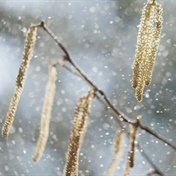- Allergic rhinitis (hay fever) is characterised by symptoms such as nasal congestion and sneezing
- These symptoms lower one's quality of life and also affect sleep
- 'Insneezia' is a term coined that refers to insomnia and sneezing
If you suffer from hay fever and find yourself being increasingly tired during pollen season, you might have “insneezia”. This term was coined by pharmacists and refers to a mix of insomnia and sneezing symptoms experienced by hay fever sufferers.
While lowered quality of sleep due to sleep-disordered breathing in individuals with atopic diseases has been extensively covered, there is less research dealing with insomnia brought on by other allergic symptoms.
Allergic rhinitis, also known as hay fever, is an allergic response to certain allergens, with pollen being the most common allergen triggering symptoms. Symptoms include sneezing, runny nose, nasal congestion and itchy eyes.
More common than you think
A whopping 11.4 million people worldwide are said to suffer from insomnia due to symptoms brought about by hay fever. A previous study investigated whether people with allergic rhinitis (AR) experience sleep-related issues as a result of allergic symptoms.
The findings of the study showed that “allergic rhinitis was associated with daytime dysfunction, including difficulty waking up, daytime sleepiness, morning headache, and the use of sleep medications”.
In another study, published in Allergy and Clinical Immunology, researchers recommended that treatment for sufferers of AR should be aimed at alleviating daytime and nighttime symptoms in order to improve quality of life.
With pollen counts soaring in South Africa and research proving that these counts remain high at night, symptoms of AR are certainly exacerbated and many people may be suffering from “insneezia” in silence.
Tips to alleviate symptoms
Nicole Jennings, spokesperson for Pharma Dynamics, expressed that symptoms associated with AR prevent sufferers from getting enough sleep and suggested some useful tips to ease symptoms:
- Take an antihistamine at least three hours before going to bed
- Use a nasal barrier spray
- Keep windows closed and use air-conditioning instead
- Take a shower and wash your hair before going to bed
- Wash pillows and sheets regularly and also vacuum floors and carpets weekly
- Make use of air purifiers to remove allergens in your home
- Wear a mask and sunglasses when exercising outdoors
Jennings also stated: “Knowing how to manage pollen allergies during the day and night will be your best defence against insneezia and will ensure you wake up refreshed in the morning.”
Image credit:




 Publications
Publications
 Partners
Partners











